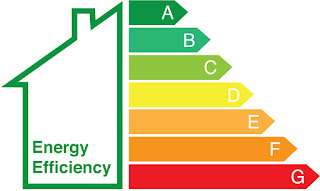What’s changing for landlords in 2019?
As you are aware the life of a landlord has changed dramatically over the past decade with an array of new regulations coming into force and additional taxes. While you may have hoped to have seen an end to any more of these significant changes, you've guessed it... more will come into play in 2019 and beyond.
Here we'll have a quick look at the more significant changes impacting landlords...
Homes (Fitness for Human Habitation) Act 2018
This act will come into play on 20 March 2019 and is seen by many as a shift in power from local authorities to tenants. This comes amid suggestions that local authorities are struggling to carry out their regulatory responsibilities, this shift in power will now allow tenants to take legal action against landlords. This is a means of ensuring that properties are “fit for purpose and human habitat” with tenants now able to sue their landlords for the cost of appropriate repairs.
Yet more uncertainty over Brexit
Over the last 24 hours the UK government has taken further blows from Parliament, received a standing eight count but has not yet hit the canvas. There is no doubt we will see further Brexit uncertainty in the days, weeks and months ahead amid concerns that Article 50 could be extended for a further two years.
Changes to mortgage interest relief
This is one you may not like, so be warned before you read on.. The UK government has steadily been introducing changes to mortgage interest relief for buy to let investors. This is being replaced by a flat basic rate tax allowance of 20%. In simple terms landlords will be unable to offset mortgage interest relief against rental income as was the case under the old system. This will create a higher net rental income figure upon which the investor’s rate of income tax will be charged.
The new basic rate tax allowance covering 20% of mortgage interest can then be deducted from the landlord’s income tax charge. Basic rate taxpayers will see no difference in their final income tax bill but for those on higher rates they will only be able to offset 20% of mortgage interest under the new system. They will therefore pay more income tax. This scheme will be phased in over a four-year period from 2017/18 with the old mortgage interest relief system removed completely at the end of the 2020/21 tax year.
Tenant Fees Bill
The Tenant Fees Bill will apply to tenancies agreed from the 1 June 2019. The bill is seen as a means of achieving greater transparency in the private rental market. It will take into account direct fees charged to tenants as well as fees that landlord’s pay to letting agents to carry out certain actions. Landlords will still be able to charge tenants for costs they have incurred because of the tenant’s actions. However, letting agent fees, check-in fees, inventory fees and renewal fees for example would be made illegal or capped. This one will definitely be an interesting one to watch, and how will letting agents cope with the shortfall.
Changes to principal private residence relief
Principal private residence relief allows landlords, who have at some time lived in the rental property they are looking to sell, to reduce potential capital gains charges. As there is no capital gains tax when selling your primary residence the historic relief quite rightly allow this to be taken into consideration. Unfortunately, from April 2020 only landlords who share their property with a tenant or who have never lived in the property will be able to offset capital gains in the future. Many believe the intention was to discourage landlords from “flipping” properties and avoiding capital gains tax but as ever, innocent “accidental landlords” are likely to be the ones most affected.
Private landlords forced to join redress scheme
In a move which will not alleviate concerns that the government is trying to price private landlords out of the buy to let market, we have yet another layer of cost being added to the sector. Community Secretary James Brokenshire recently announced plans for a new “housing complaints resolution service”. While we await details and a launch date, we know that private landlords will be legally required to join this new redress scheme with fines of up to £5000 for those who fail to do so..
EPC ratings - You won't be able to rent a property out with a rating below E
From 1 April 2018 those looking to agree new tenant leases for their properties will need to have an Energy Performance Certificate (EPC) with a minimum rating of E. If the rating is below E then landlords will need to upgrade the property to meet the required standards before they can take on a tenant. The changes only apply to England and Wales from 1 April 2018 with Scotland and Northern Ireland likely to follow suit at some point.
And from 1 April 2020 all domestic properties will need to be upgraded to the E rating even if long-term tenancy agreements are in place. This regulation will also be rolled out to non-domestic properties from 1 April 2023, again, even if tenancy arrangements are already in place. As a consequence, many landlords will be forced to invest in upgrading their properties before they can earn even a penny of rental income. Long-term plans suggest this rating could rise to D by 2025 and C by 2030.




Comments
Post a Comment